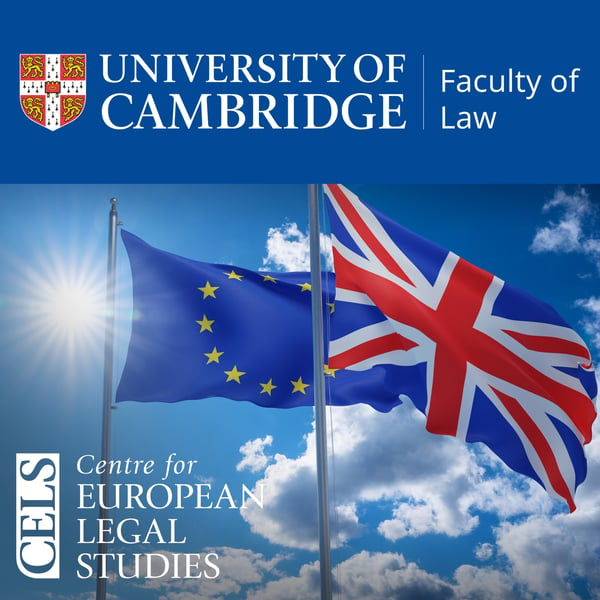'EU Antitrust Law's Resilience: The Good, the Bad, and the Ugly': CELS Seminar
Cambridge Centre for European Legal Studies (CELS) Podcast
Faculty of Law, University of Cambridge
0 • 0 Ratings
🗓️ 20 November 2024
⏱️ 42 minutes
🧾️ Download transcript
Summary
Transcript
Click on a timestamp to play from that location
| 0:00.0 | Good afternoon, everyone. It gives me a very great pleasure to introduce our speaker today. |
| 0:11.0 | This is Dr. Andrea Ney, who is currently a senior lecturer at King's College London, which, as you know, |
| 0:19.0 | is a world leading center in the study of competition law. |
| 0:22.9 | I'm particularly happy because Andrea Ney was an LLM student, |
| 0:27.1 | outstanding LLM student of this faculty, |
| 0:31.2 | and then went on to do a PhD |
| 0:33.4 | under the direction of Professor Thackist Streetramus. |
| 0:36.6 | And then she spent a period of a research fellowship at the London School of Economics |
| 0:43.3 | was a lecturer for a year at City University before taking up her position in King's College, London. |
| 0:50.3 | So following from the very interesting competition theme seminar that we had last week from |
| 0:56.4 | Professor Ackerman, we had another competition theme seminar, which is going to talk about the |
| 1:02.9 | resilience of antitrust. And without any more delay, I just leave the floor to Dr. Kalintiri. |
| 1:10.1 | Thank you so much. Thank you. So good afternoon, |
| 1:14.3 | everyone, and thank you so much to Albertina for the kind invitation and for the very |
| 1:20.7 | fine introduction. I'm very excited to be back in Cambridge. So as Albertina mentioned, I did my |
| 1:27.4 | master here in 2010. |
| 1:29.8 | I actually had seminars in this very same room. I took Iggy trade law and I remember it was in |
| 1:34.7 | this very same room. And some of my teachers are in this room, Albertina, okay, Catherine, |
| 1:40.5 | in the back. So I'm very grateful for the education I received here and the commitment |
| 1:47.0 | and the kindness of the teachers. So I'm very delighted to be back today to talk about a |
| 1:54.0 | recent paper of mine who discusses, we discusses a seemingly simple question. And that is whether EU |
| 2:03.6 | untrust law is resilient in the face of change. And this is a question that has received |
... |
Please login to see the full transcript.
Disclaimer: The podcast and artwork embedded on this page are from Faculty of Law, University of Cambridge, and are the property of its owner and not affiliated with or endorsed by Tapesearch.
Generated transcripts are the property of Faculty of Law, University of Cambridge and are distributed freely under the Fair Use doctrine. Transcripts generated by Tapesearch are not guaranteed to be accurate.
Copyright © Tapesearch 2025.

